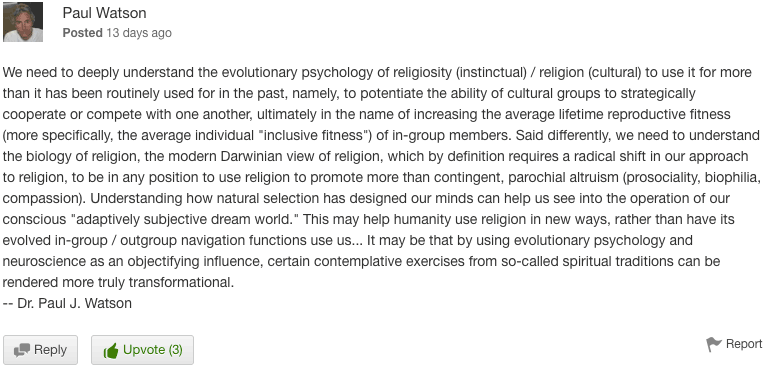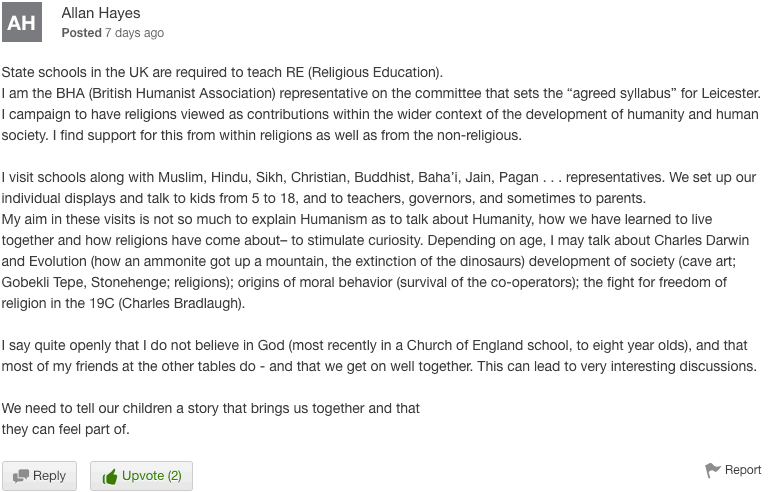This week’s comments were posted on Rabbi Sharon Brous’ talk, which has sparked quite the conversation.
The first poster is Paul Watson, who is exactly the type of community member I’d hoped to highlight when we began this project. Paul’s comment is thoughtful, speaking from his particular area of interest/expertise, and looking at the larger picture. I think it’s this zoomed-out view that I’m most intrigued by. He takes a broader look at religion — across time, through the lens of biology, evolutionarily — than many other commenters have, understandably so. When I listen to a talk like Sharon’s, I tend to think about myself, my views on the topic, and the people in my life and their views. Reading Paul’s comment reminds me to check for my own blind spots; to revisit Rabbi Brous’ talk with a wide open mind.

Paul Watson writes: “We need to deeply understand the evolutionary psychology of religiosity (instinctual) / religion (cultural) to use it for more than it has been routinely used for in the past…”
The second poster is Allan Hayes, another community member who, like Paul, is entirely worthy of being highlighted. He’s also expressed a larger commitment to TED, in both the personal and TEDx organizer kind of way, so I’m excited to encourage his continued participation.

Allan Hayes writes: “State schools in the UK are required to teach RE (Religious Education). I am the BHA (British Humanist Association) representative on the committee that sets the “agreed syllabus” for Leicester … I visit schools along with Muslim, Hindu, Sikh, Christian, Buddhist, Baha’i, Jain, Pagan . . . representatives. We set up our individual displays and talk to kids from 5 to 18, and to teachers, governors, and sometimes to parents. My aim in these visits is not so much to explain Humanism as to talk about Humanity, how we have learned to live together and how religions have come about -– to stimulate curiosity. …”
Allan’s comment is great because I’ve learned so much from reading it. I now know a little more about how religion is taught in UK schools, and that its teaching is a requirement. I’ve also learned a great way to discuss my religious beliefs with others — no matter what they are — in a way that doesn’t imply superiority of any kind; “we get on well together” :) Lastly, like any good lesson, it made me think. Particularly, it made me think about how something like that would look in the country I live in now, and the one I lived in before. How would the parents, and children, in these communities respond? What changes could be made to tailor the lessons Allan is teaching to these communities? How can we best “tell our children a story that brings us together and that they can feel part of”?
I hope you enjoyed Paul and Allan’s comments as much as I did!